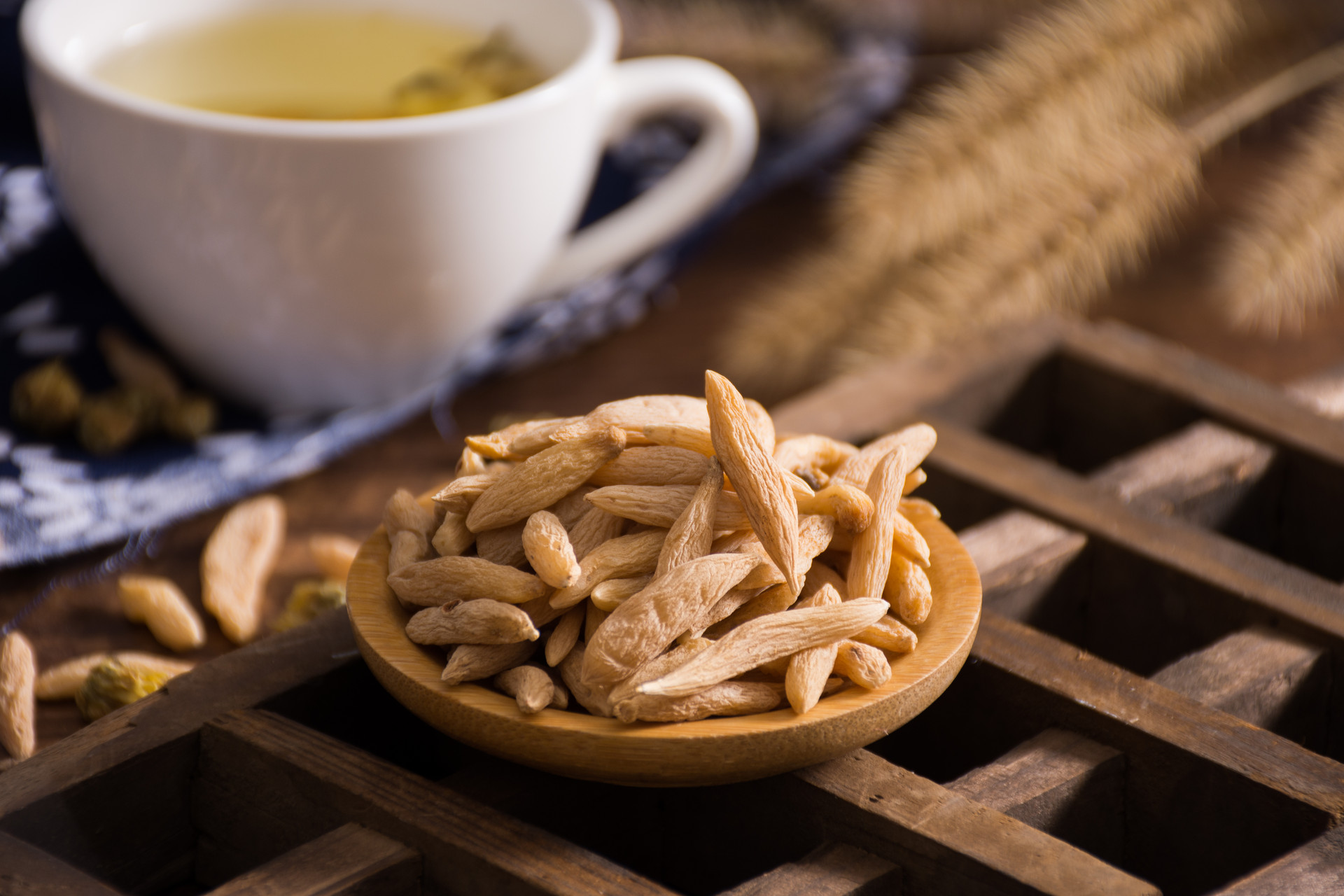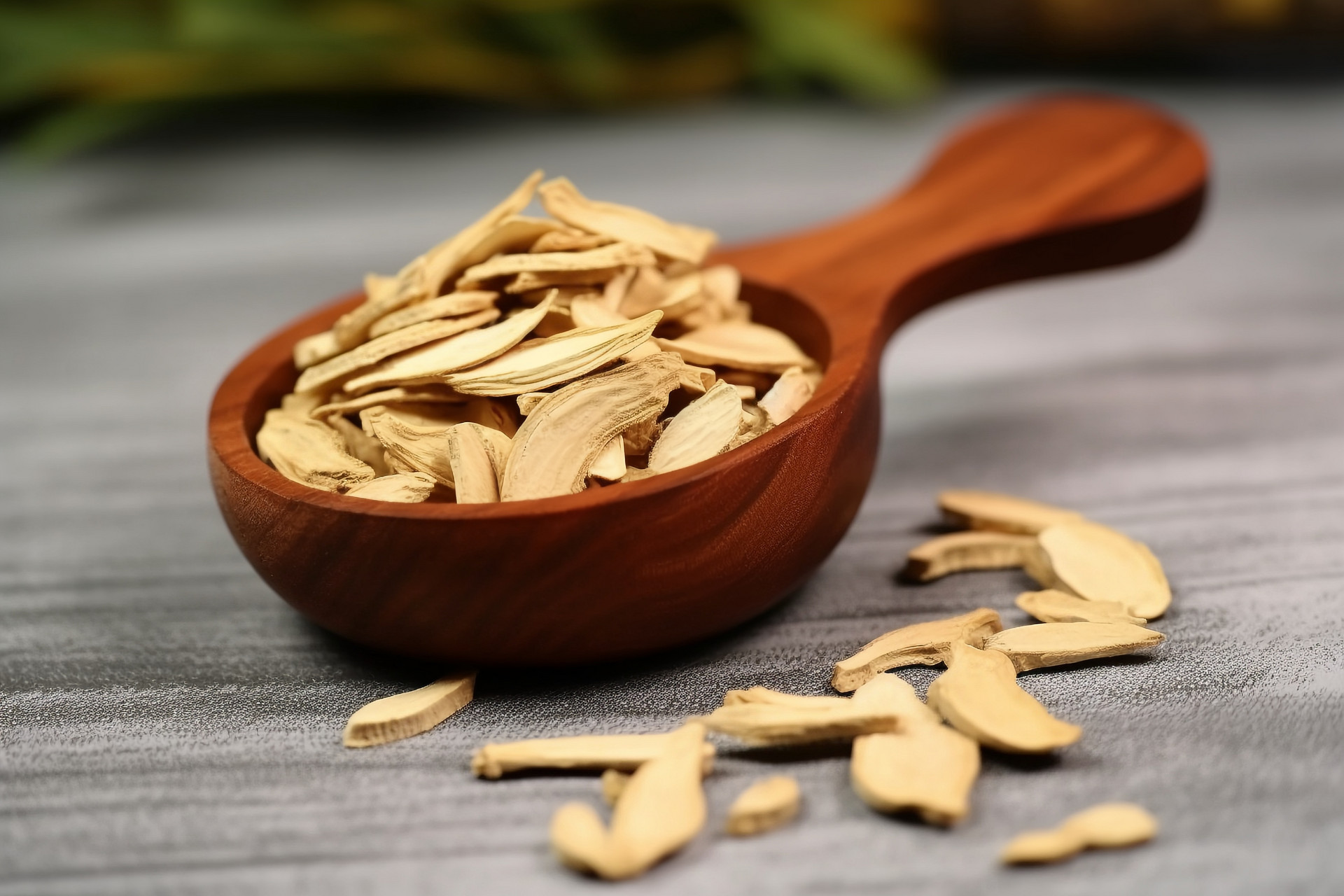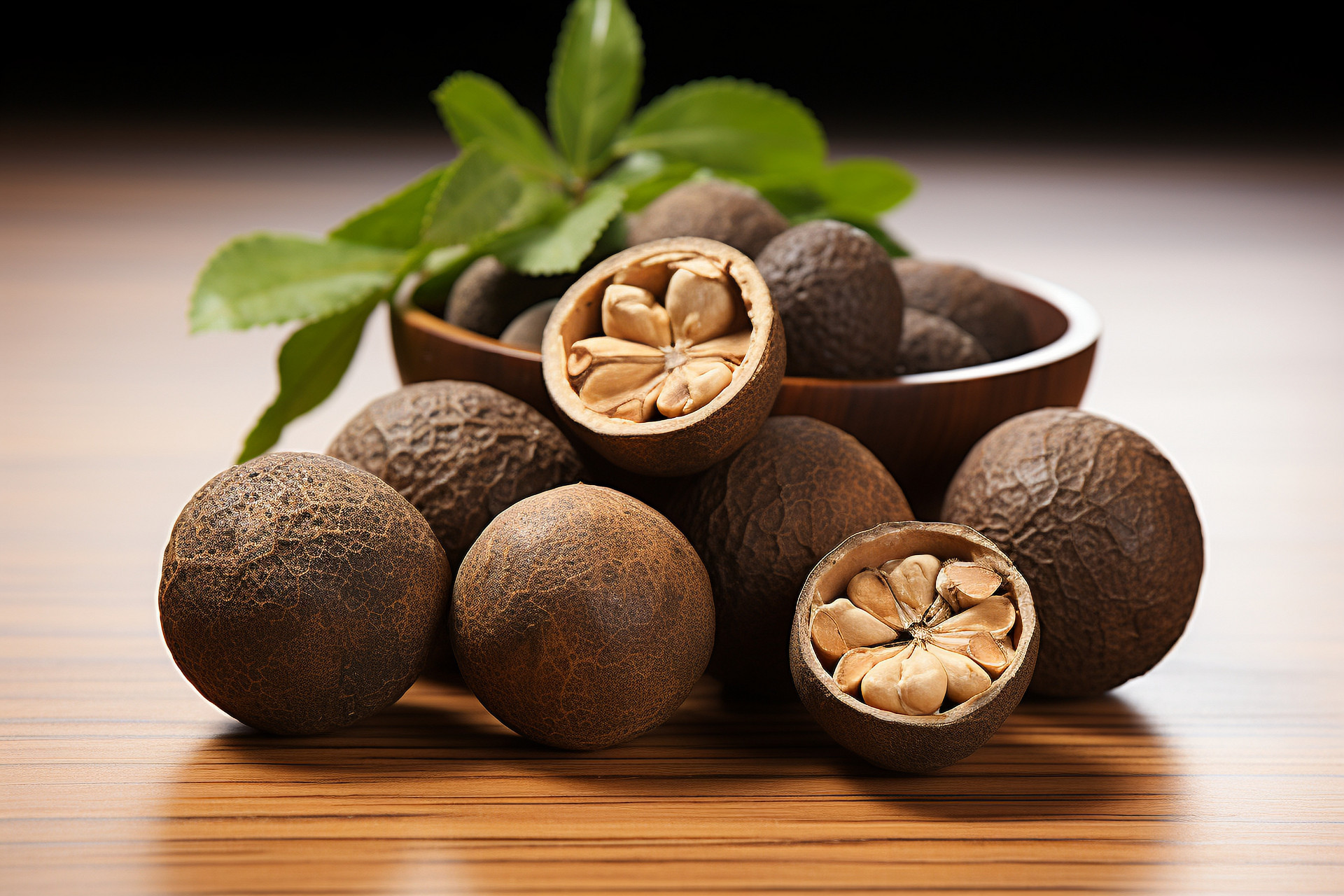Bozi Ren, also known as Baishi or Bairen, is the seed kernel of the cypress plant after removing the seed coat. It was first mentioned in the "Shennong Bencao Jing" and is classified as a top-grade herb. It has a neutral nature and a sweet taste. It enters the heart, liver, and spleen meridians and has the effects of nourishing the heart, calming the mind, and lubricating the intestines for smooth bowel movements. It is used to treat symptoms such as palpitations, insomnia, nocturnal emission, night sweats, and constipation. Bozi Ren is an ingredient commonly found in Chinese patent medicines that nourish the heart and calm the mind, such as Bozi Yangxin Wan, Tianwang Buxin Dan, and Jiannao Wan. It should be noted that some Bozi Ren in the market is adulterated with sand grains to increase weight, so careful identification is required when using it.
Authentic Bozi Ren
It has a long ovoid or elongated oval shape, or sometimes a long conical shape, measuring 3-7 millimeters in length and about 1.5-3 millimeters in diameter. Fresh Bozi Ren appears light yellow or yellowish-white, but it darkens to a yellow-brown color with the secretion of oil upon prolonged storage. The seed kernel is often covered with a thin membranous inner seed coat, with a slightly pointed top and a round triangular shape. It has dark brown spots and a blunt round base, which is lighter in color. When cut, the cross-section is milky white to yellowish-white, with plenty of endosperm and 2 or more cotyledons containing abundant oil. It has a slight fragrance and a mild, oily sensation when tasted.
Adulterated Bozi Ren
It is adulterated with irregular sand grains that are yellow-brown in color, similar in size to Bozi Ren. The sand grains are usually mixed and stir-fried together with Bozi Ren, with the oil from Bozi Ren sticking onto the sand grains. The color is similar to the authentic product, giving the impression of crushed Bozi Ren. It feels heavier when held, and can be easily crushed by hand compared to the sand grains, which do not break. There is a sound of sand grains rubbing against each other. If not carefully distinguished, it is easy to be deceived by the adulterated product.
Some adulterated Bozi Ren contains as much as 60% sand grains, which seriously affects the quality and efficacy of Bozi Ren. Taking adulterated Bozi Ren can delay treatment, so it is necessary to carefully identify it.











